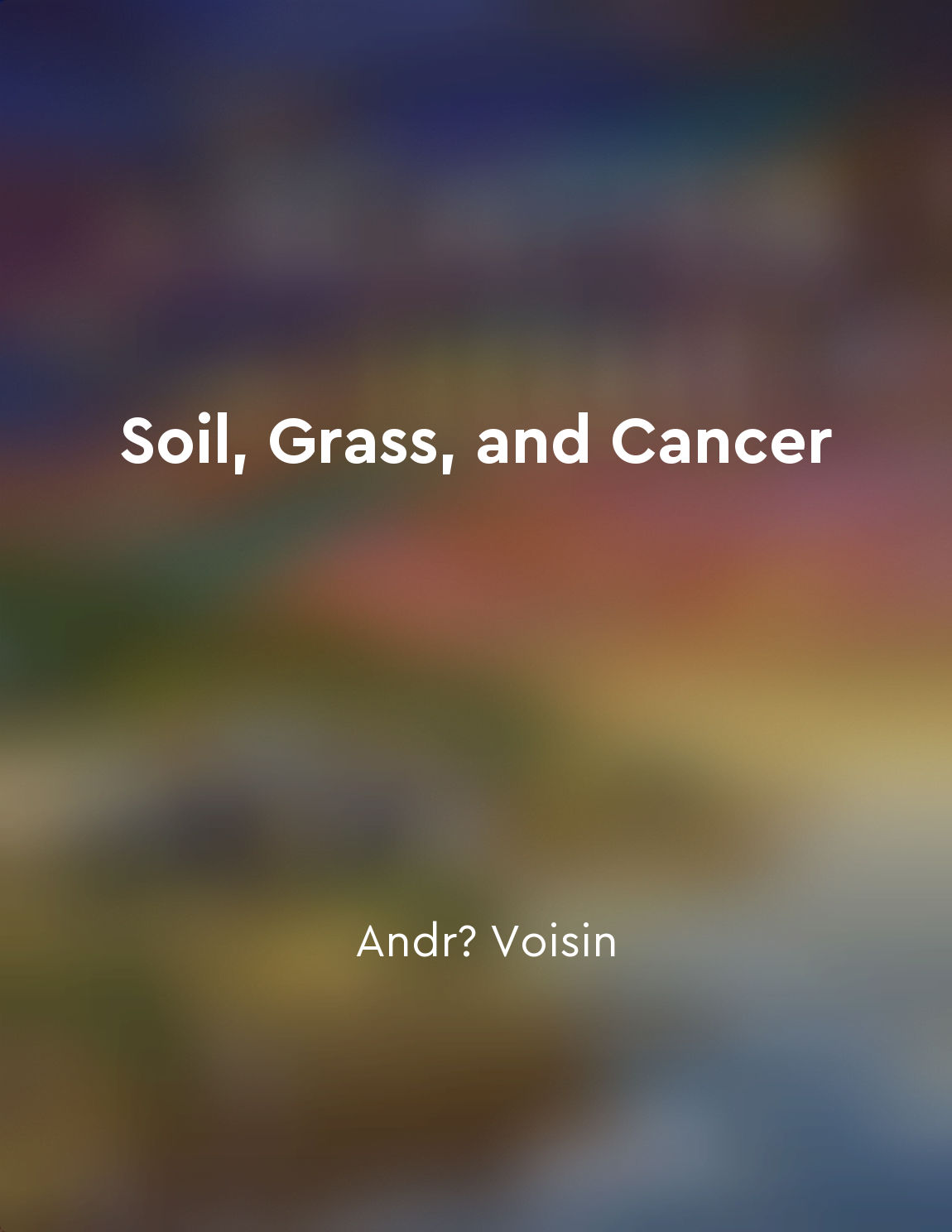Ecosystem balance is essential for human health from "summary" of Soil, Grass, and Cancer by André Voisin
The intricate web of life that exists within ecosystems is a delicate balance that must be maintained in order to ensure the health and well-being of all living organisms, including humans. Everything in nature is interconnected in some way, and when one component of an ecosystem is disrupted, it can have far-reaching effects on the entire system. When we disrupt the balance of an ecosystem through activities such as deforestation, overfishing, or the use of harmful chemicals, we are not only harming the environment but also putting our own health at risk. Ecosystems provide us with essential services such as clean air, fresh water, and fertile soil, all of which are necessary for our survival. For example, healthy soil is teeming with microorganisms that play a crucial role in nutrient cycling and soil fertility. When we degrade the soil through intensive agriculture or pollution, we not only reduce the productivity of the land but also compromise the quality of the food that we eat. This can have serious implications for our health, as nutrient-poor soil leads to nutrient-poor crops, which in turn can lead to nutrient deficiencies in humans. Similarly, the quality of the air we breathe and the water we drink is directly impacted by the health of the ecosystems that surround us. Forests act as natural air filters, removing pollutants and providing us with clean, oxygen-rich air to breathe. Wetlands and rivers act as natural water filters, purifying water and regulating water flow. When we degrade these ecosystems through urbanization, pollution, or climate change, we not only harm the environment but also jeopardize our own health. Maintaining ecosystem balance is therefore essential for human health. By respecting the interconnectedness of all living organisms and recognizing the importance of biodiversity, we can ensure that ecosystems remain healthy and resilient. This, in turn, will benefit not only the environment but also our own well-being. In a world where human activities are increasingly impacting the natural world, it is more important than ever to prioritize the health of our ecosystems for the sake of our own health and the health of future generations.Similar Posts
Listening to marginalized voices
The concept of listening to marginalized voices is an essential aspect of building a more just and sustainable world. Marginali...
Modern food industry has prioritized profits over health
The food industry has made a conscious decision to prioritize profits above all else, including the health of consumers. This d...
Inclusivity promotes diversity
Inclusivity is a powerful force that can drive positive change in our society. By embracing inclusivity, we create a welcoming ...
Invasive species struggle to survive
In the absence of humans, the delicate balance of nature is left undisturbed. Invasive species, however, find themselves in a p...
Partnerships
Partnerships are crucial for the successful conservation of Washington's natural heritage. By working together with various sta...
Investing in green technologies for a brighter future
Investing in green technologies for a brighter future is not just a lofty goal, but a practical necessity in our rapidly changi...
Shifting from humancentered to Earth-centered perspectives
The human-centered perspective has long been the dominant lens through which we view the world. It is a perspective that places...
Conservation efforts aim to protect biodiversity
Conservation efforts are crucial in maintaining the variety of species that make up biodiversity. Biodiversity refers to the ra...
The Earth is interconnected in ways we are only beginning to comprehend
The intricate web of connections that exist within the Earth's ecosystem is far more complex than we can fathom. Every organism...
Earth is a fragile oasis in the vastness of space
The Earth is a precious jewel floating in the vast darkness of space, a delicate oasis in the cosmic desert. Our planet is a ha...

